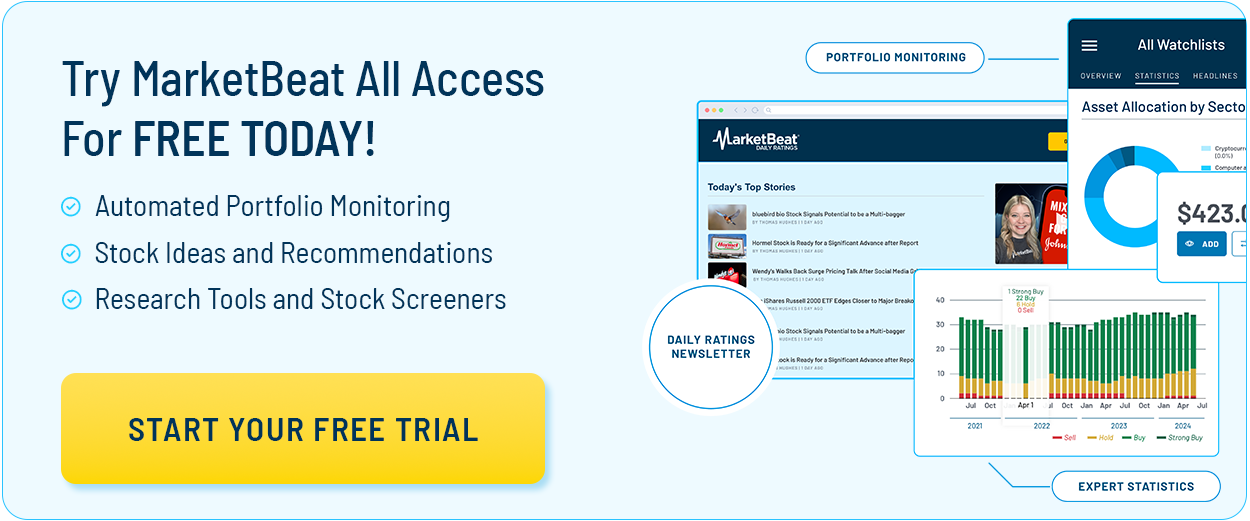Market Chaos Alert: Signs of Collapse Are Here (From American Hartford Gold)
What NVIDIA’s Big Bet on Rival Quantinuum Means for D-Wave Stock Written by Nathan Reiff on September 8, 2025 
Key Points - D-Wave investors must monitor intensifying competition between rivals, including IonQ, Rigetti, and now Quantinuum.
- Quantinuum, which is a joint venture of Honeywell, recently announced $600 million in new investments, including a major contribution from NVIDIA, as well as a partnership with the chipmaker.
- Though D-Wave has a leg up on reaching the market with its Advantage2 system, the latest capital raise values Quantinuum at about double D-Wave's size; investors should watch closely for the impact on QBTS stock.
Though shares of quantum computing innovator D-Wave Quantum Inc. (NYSE: QBTS) are up an impressive 60% year-to-date (YTD), in the past month they've slumped by more than 10%. A post-earnings bump dissolved into a price plateau for QBTS shares. Now, as investors watch for signs of news that could stimulate a continuation of D-Wave's rally, the company faces increased threats from its rivals. Niche quantum competitors like IonQ Inc. (NYSE: IONQ) and Rigetti Computing (NASDAQ: RGTI) continue to pursue their own technologies and revenue streams, which is already a substantial risk for D-Wave investors. With news in early September that chip giant NVIDIA Corp. (NASDAQ: NVDA) is investing the better part of a billion dollars in Quantinuum—a joint venture of automation, aerospace, and energy conglomerate Honeywell International (NASDAQ: HON)—a well-resourced new competitor has emerged as well. What should D-Wave investors expect as the quantum industry grows more crowded?
On September 17th, the Fed faces an impossible choice—and Wall Street insiders are already preparing for the fallout. Whether Powell hikes or cuts, both paths lead to wealth destruction for unprepared investors.
American Alternative Assets just released the Mar-A-Lago Accord, revealing how elites are positioning ahead of the decision—and how you can do the same.
Click here to get the free guide and protect your savings before the Fed acts. New $600 Million Investment in Quantinuum Quantinuum is a full-stack quantum computing firm aiming, alongside others in the industry, to develop systems that are broadly commercially viable. Unlike D-Wave, IonQ, and Rigetti, Quantinuum is not an independent publicly traded company. Instead, it is a joint venture created by the major tech company Honeywell. That may not last long, though—Quantinuum is building up investments through equity capital raises in a move analysts view as a precursor to an eventual IPO, potentially in the next two years. While many quantum companies can claim breakthrough technological achievements, the proof often lies in those firms' partnerships. For a company like D-Wave, recently announced partnerships with Davidson Technologies, Incheon Metropolitan City, and many others demonstrate the perceived value of the firm's quantum tech among partners across sectors. For Quantinuum, the latest capital raise, which totals around $600 million and brings the firm's valuation to $10 billion, includes a transformational partner in NVIDIA. With the investment, Quantinuum becomes a founding partner in NVIDIA's Accelerated Quantum Research Center. Considering NVIDIA's keen interest in advancing quantum technology and its significant resources—together with CEO Jensen Huang's influence over quantum stocks through mere speculation about the technology's commercial arrival—this move elevates Quantinuum to the top tier of the quantum industry. The Fallout for D-Wave and Others A high-profile development for a strong competitor is, of course, less than ideal for D-Wave, but shares did not react immediately following the announcement. One reason for that may be that D-Wave and Quantinuum have taken fundamentally different approaches to developing their technologies. D-Wave has centered its efforts on annealing tech (and, increasingly, on gate-model quantum tech), which is seen as strategically advantageous for certain types of problems and cases. Quantinuum, on the other hand, uses trapped-ion hardware, viewed as highly stable but difficult to scale. Both firms thus have numerous and significant obstacles before they become truly viable on a large scale. D-Wave may have the advantage in that last area, though, thanks to growing sales and popularity of its Advantage2 system and cloud offerings. Quantinuum's products include developer tools and end applications like InQuanto, and its next-gen quantum computing system, Helios, is expected later this year. When this iteration of Helios launches, customers will be able to make a more direct comparison between it and Advantage2 than has previously been possible. While other smaller rivals may struggle to stand up to Quantinuum's substantial financial backing, D-Wave could be in the best position to do so. Given that the company reached the midpoint of the year with a record cash reserve of more than $800 million, it has the flexibility to adapt in various ways. Management has already pointed to expansion through acquisitions as a goal of D-Wave, but the firm has not offered many clues about possible targets. Whether or not this development with Quantinuum alters that approach remains to be seen. what I just learned about what's unfolding in the White House is truly stunning…
And you need to see it for yourself.
Once you see what's unfolding behind the scenes, you'll understand why I rushed this interview and opportunity to you today. Click here to watch this video Analyst Views of D-Wave and Honeywell D-Wave remains a unanimous Buy based on 11 analyst ratings, and shares are expected to reach a consensus price target of $19.27, representing more than 25% in upside. Although it's not a direct comparison, Honeywell is a Moderate Buy, with analysts roughly split between Buy and Hold ratings, although it also has an estimated 19%, roughly, in possible upside. Read this article online › Recommended Stories: 
Did you enjoy this article?  
|